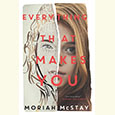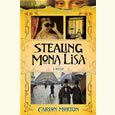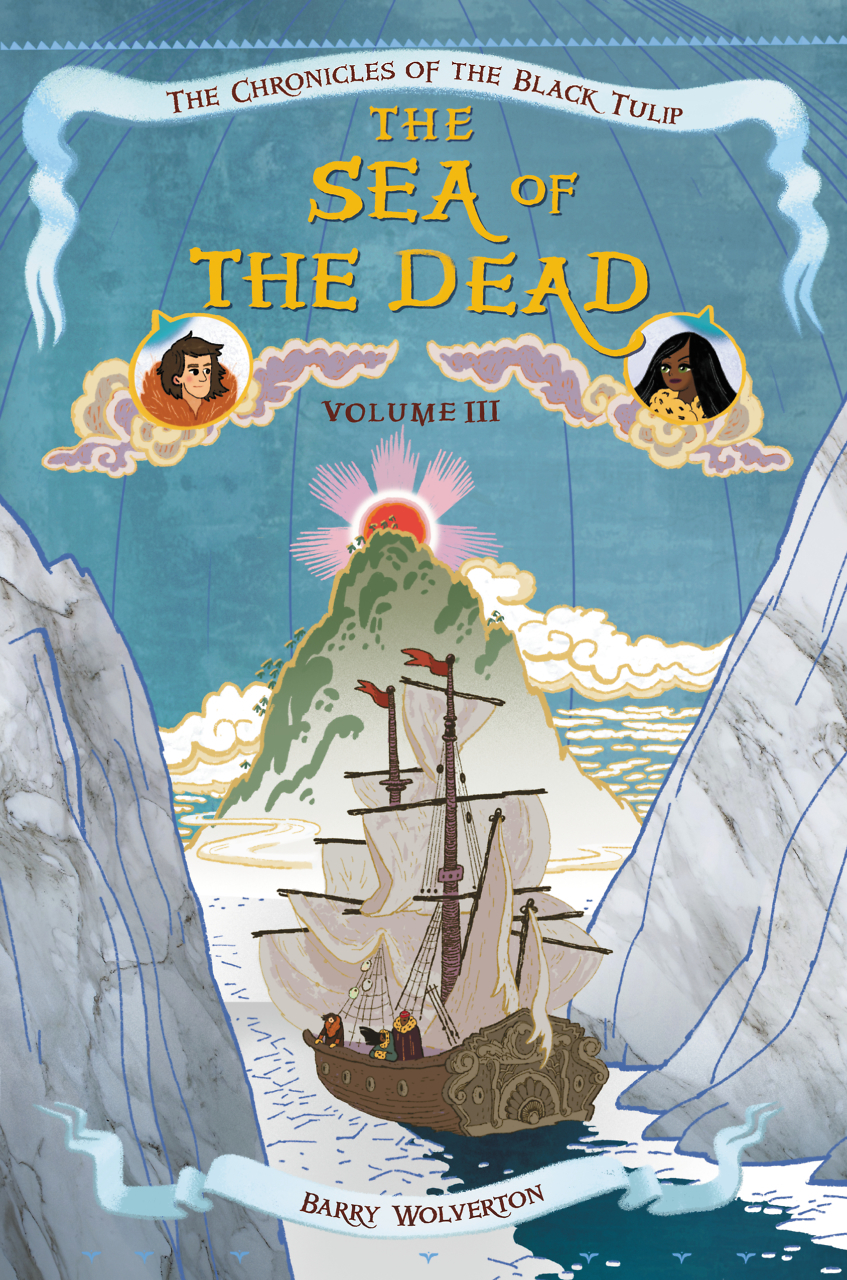Survival of the Hungriest
C Pam Zhang’s Land of Milk and Honey is set within an elite bubble in a poisoned world
C Pam Zhang’s new novel Land of Milk and Honey possesses the stark outline of one of Kafka’s creepy fables. While most of the world suffers under a mysterious “smog” that destroys traditional agriculture, an unnamed chef is hired by a wealthy entrepreneur to cook for a select Alpine community that lies above the noxious cloud. High in the mountains, scientists genetically engineer life forms to survive in remaining habitats; below, chaos and extinction pervade. As the chef recounts her experiences in the rarefied air, Zhang poses an evolutionary question: Who gets to survive?
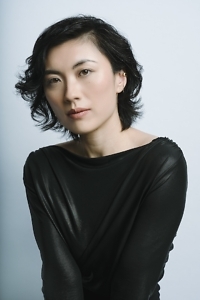
Zhang’s tale is Kafkaesque too in its use of a befuddled narrator trying to make sense of bizarre circumstances. She learns that her employer (also unnamed) depends on the Italian government for research funding, but how he pulls the levers of power is beyond her ken. Other than instructions to the kitchen staff and occasional contact with an onsite meteorologist, the narrator interacts only with her employer and his brilliant daughter, Aida, the genius behind the lab’s program to save select species. After Aida and the narrator become lovers, she begins to perceive that Aida’s plans extend far beyond the preservation of life. Aida wants to be its master.
Though initially grateful to be pulled out of the toxic vapor, the narrator is plagued by survivor’s guilt. She thinks of her employer as a “rich monster” and views her well-stocked kitchen as imperial conquest: “I felt a euphoria such as the European colonizers must have upon sighting new land.” While she “floated alone through days of terrifying uncertain abundance,” her thoughts drift down “to the world of gray plates and empty shelves, of starving children in Louisville and Addis Ababa.” She appreciates living in this “bubble of privilege,” mostly for the food that’s not available elsewhere, but it comes at a psychic cost.
Land of Milk and Honey is the name given to the “elite research community” situated on a “minor” peak along the Italian-French border. Rendered in Italian, Terra di latte e miele, it sounds romantic but also reveals the employer’s arrogance, suggesting as it does that he is prophet and savior, his chosen people a chillingly small sliver of the world’s population. The narrator senses that her new home, far from being God’s country, is actually the underworld, where the “air smelled scorched, evil. Calmly I understood that I must be in hell, that the clear sky, kitchen, fruit had been a dream of the dead.”
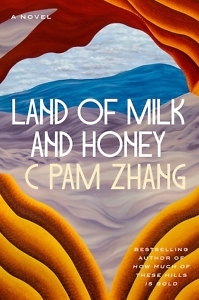 Ambivalent throughout her employment, which she calls “a year in the sun,” the narrator oscillates between ethical dread and erotic abandonment. She tries to emulate Aida, who is “aggressive in the pursuit of her pleasure,” at meals and in bed. With the Earth plunged into darkness, Aida awakens the narrator to a new world of sensory delight: “All around me, as if the scales had fallen from my eyes, I saw color flushing the slopes, a color I’d never again hoped to see: that green that is the herald of flavor and pleasure, that says: look, says: wait, says: taste.” Later, these moments of joy seem to her morally dubious in a time of catastrophe, but they are intensely human. Surely, if our species is to survive, she thinks, it’s precisely because such pleasures are in the offing.
Ambivalent throughout her employment, which she calls “a year in the sun,” the narrator oscillates between ethical dread and erotic abandonment. She tries to emulate Aida, who is “aggressive in the pursuit of her pleasure,” at meals and in bed. With the Earth plunged into darkness, Aida awakens the narrator to a new world of sensory delight: “All around me, as if the scales had fallen from my eyes, I saw color flushing the slopes, a color I’d never again hoped to see: that green that is the herald of flavor and pleasure, that says: look, says: wait, says: taste.” Later, these moments of joy seem to her morally dubious in a time of catastrophe, but they are intensely human. Surely, if our species is to survive, she thinks, it’s precisely because such pleasures are in the offing.
The community’s exclusivity, though, taints the happy moments with awareness of all those who are trapped below. Zhang’s depiction of this mountain retreat works as a satire of the .1 percenters (.01, perhaps). The narrator’s employer openly plies Italian government officials with bribes and favors, corruption that he justifies as necessary for their pursuit of a higher good. He and his guests devolve from hypocrisy to craven self-interest and perversion. They dine on genetically re-created woolly mammoth and save chimpanzees from extinction only to use them as prey in recreational hunts. These plutocrats don’t thrive because of their fitness, the narrator thinks. “This was survival of the hungriest.”
Unlike Kafka, Zhang, author of How Much of These Hills Is Gold (2021), retains a toehold in recognizable reality, the world that existed before the smog appeared. The narrator recalls her immigrant mother, who sacrificed a professional life in China to provide opportunities for her daughter in Los Angeles. The narrator also hints at life after the smog, giving just enough details to reassure readers that life finds a way to continue.
Land of Milk and Honey is not explicitly a climate-change novel, but the smog represents an industrial disaster that we can’t solve with additional technology. Like Stephen Markley’s The Deluge and Jess Row’s The New Earth (both published this year), Zhang’s novel offers a sobering vision of how we are likely to respond to ecological crisis. Zhang’s message, neither simple nor comforting, is that the monstrous world we have created is going to claim millions of casualties before the carnage is stopped.
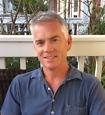
Sean Kinch grew up in Austin and attended Stanford. He earned a Ph.D. from the University of Texas. He now teaches English at Montgomery Bell Academy in Nashville.
